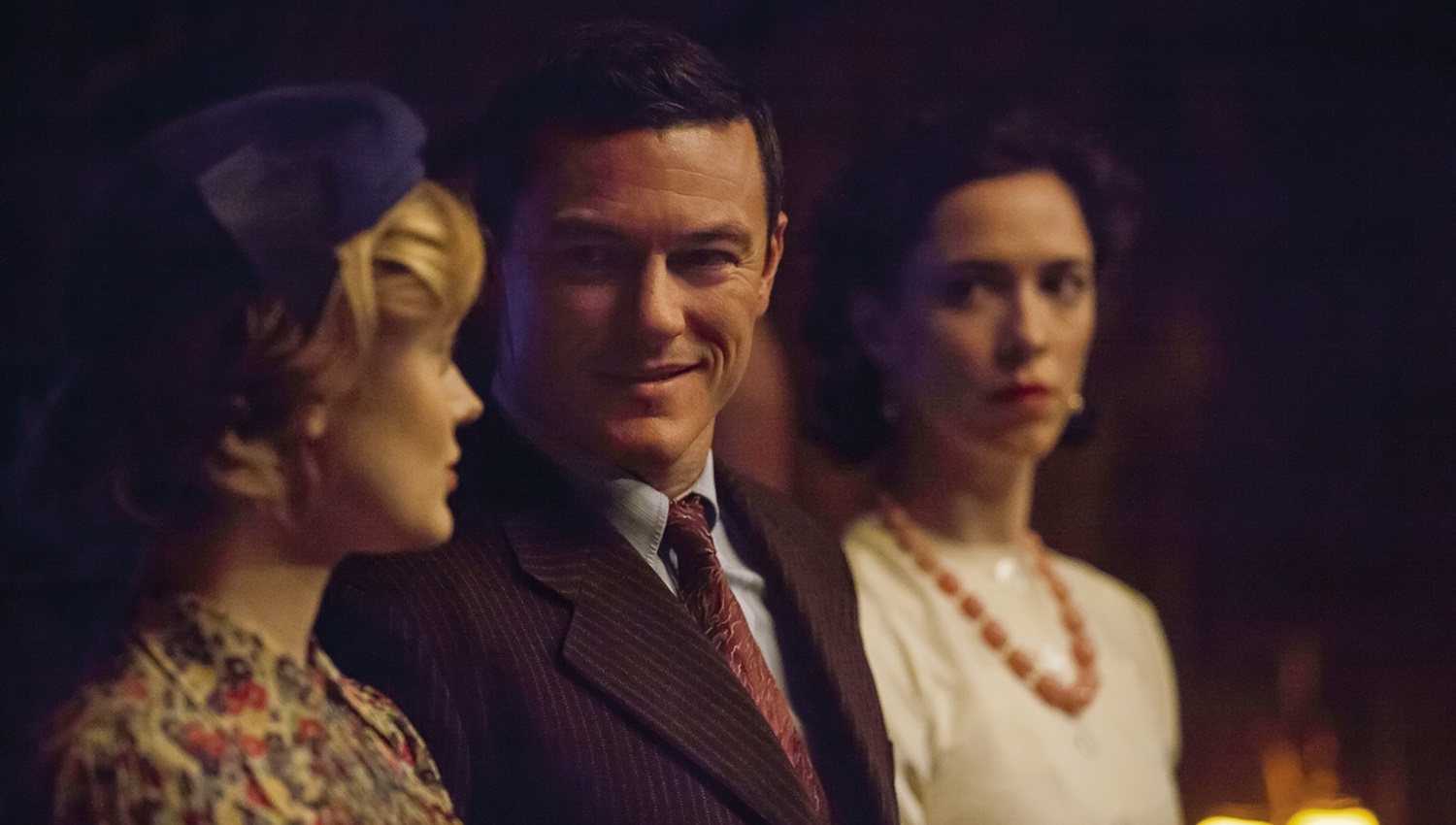
Professor Marston and the Wonder Women
Dustin Chase
Audiences may expect some formal drama about the man credited for creating the Wonder Woman comic books. Instead, what they will get is a unique exploration into the threesome behind its origin. Kinky or not, Professor Marston and the Wonder Woman is an unconventional love story about the shared love of three people. I doubt anyone expected this kind of story behind what is now the most talked about and highest grossing superhero film of 2017. Both Wonder Woman the movie and Professor Marston are both directed by women and about women, which demonstrates just how far the advancements in equality have come since the time and place seen in this story. All three of the main performances are good, but Rebecca Hall (Christine) once again emerges as the highlight. Every performance, better than the last.
William Marston (Evans) sits in front of the National Comic Book Committee along with the ethics board, defending his Wonder Woman comic book, that for a time was outselling Superman and Batman. He explains her Amazonian background, truth telling rope, and where her personality comes from. What’s not on the table for discussion, his private life, which is the reason readers started burning the comics and parents began objecting. William taught psychology in the 1920’s, with his wife Elizabeth (Hall) his assistant. Her being a woman prohibited attaining a similar position, despite her equal qualifications. Olive (Heathcote) came to them as a student, catching their attention because of her beauty and intelligence. She assists them in research and then in the bedroom as they take the teacher student relationship to a new level.
All three of the main performances are good, but Rebecca Hall (Christine) once again emerges as the highlight.
“Don’t f*** my husband,” Elizabeth casually asks Olive after William brings her on as a research assistant. They first begin perfecting William’s lie detector invention, leading to all sorts of truths and hurt feelings. The brutal honesty of the character here is refreshing, everyone says what they mean, or are exposed in research. This provides many well performed scenes of hostile conversations as the trio explore how this unique relationship will function. It’s interesting that if their exposure hadn’t led to the firing of the Marton’s, Wonder Woman would never exist. The more intimate and provocative their relationship becomes, the more we begin to see how Wonder Woman came alive. “Together you are the perfect woman,” William explains.
While I think Patty Jenkins Wonder Woman film starring Gal Gadot is an adequate superhero movie, it doesn’t compare to the originality of this story. That fact that it’s a true story is all the more shocking and might even turn some conservative viewers off to the entire Wonder Woman franchise. Wonder Woman originated as propaganda to show female power over men and create something of a balance between the male dominated comic book world and characters. So many films at TIFF showcase love through an unusual perspective and Professor Marston is one of those successful gems. The exploration of psychology within the origin of the character is fascinating and on a cinematic level there isn’t a dull moment. The narrative skips from one compelling argument, backed by smart editing and a rousing musical score.
Final Thought
The movie about Wonder Woman’s origins turns out better than the superhero blockbuster itself.
